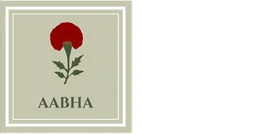Efficient booking and reservation processes are vital for hospitality providers, and the way businesses communicate with customers plays a crucial role in shaping their experience. Modern communication channels serve as practical examples of how timeless principles—such as responsiveness, clarity, and accessibility—are adapted to the digital age. One such example is Skyhills, which demonstrates how integrating multiple contact options can enhance customer satisfaction and operational efficiency. This article explores how various communication channels impact booking efficiency, how digital tools streamline reservation processes, and methods for measuring customer satisfaction.
Table of Contents
How Different Communication Channels Impact Booking Efficiency
Utilizing Live Chat for Instant Reservation Support
Live chat has become a cornerstone of real-time customer service, offering immediate assistance that can significantly improve the booking experience. Studies indicate that websites with live chat support see up to 40% higher conversion rates compared to those without it. For example, when a potential guest encounters questions about room availability or special requests, live chat allows for quick clarification, reducing the likelihood of drop-offs during the booking process. The immediacy of this channel makes it especially effective for handling common inquiries and guiding customers through complex options.
Effectiveness of Phone Support in Handling Complex Bookings
Despite the rise of digital communication, phone support remains vital for managing complex or personalized reservations. Human interaction on the phone allows for nuanced understanding and tailored solutions, vital when dealing with special requests or multi-layered bookings. Research shows that customers booking high-value or customized vacations prefer direct human contact, citing increased confidence and perceived reliability. For instance, a guest may require assistance coordinating multiple properties or special amenities, which is best handled through detailed conversation with a knowledgeable representative.
Role of Email and Contact Forms in Managing Reservation Requests
Email and contact forms serve as essential tools for documentation and asynchronous communication. They are especially useful for non-urgent inquiries, detailed requests, or when customers prefer written confirmation of their reservation details. An advantage of email correspondence is that it creates a record that can be referenced later, reducing misunderstandings. For example, a guest requesting a specific dietary accommodation can detail their needs via email, allowing the hotel to prepare in advance. To maximize efficiency, businesses often automate responses acknowledging receipt and providing estimated reply times.
Integrating Digital Tools to Streamline Reservation Processes
Mobile Apps and Their Role in Facilitating Bookings
Mobile applications have revolutionized the booking landscape by providing users with easy, on-the-go access to reservations. Well-designed apps incorporate intuitive interfaces, real-time availability updates, and secure payment options. For example, a user can browse available rooms, select dates, and confirm their reservation within minutes. These apps often include features like push notifications for upcoming stays or special offers, enhancing customer engagement and loyalty. According to recent surveys, over 60% of travelers prefer using mobile apps for their reservations, underscoring their importance in modern hospitality.
Automated Messaging Systems for Confirmation and Follow-up
Automation of messaging streamlines communication by providing instant confirmations and proactive follow-ups. Automated emails or SMS messages confirm bookings immediately after completion, reducing anxiety and uncertainty for guests. Additionally, follow-up messages can solicit feedback or offer complementary services, fostering a sense of care and professionalism. For instance, an automated message might thank the guest for their reservation and include useful information such as check-in instructions or local attractions.
Adoption of AI Chatbots for 24/7 Assistance
Artificial Intelligence-powered chatbots represent a significant advancement in customer service, offering round-the-clock assistance without human intervention. These chatbots can handle a wide range of queries—from availability checks to special requests—during off-hours or peak times. An AI chatbot’s ability to learn from interactions ensures continuous improvement. For example, a guest seeking to modify their reservation late at night can receive immediate support, enhancing overall satisfaction and increasing the likelihood of repeat bookings.
Measuring Customer Satisfaction with Skyhills Communication Options
Feedback Collection Methods Post-Reservation
Gathering feedback after the reservation process provides insights into customer perceptions and areas for improvement. Common methods include online surveys, email questionnaires, or review prompts integrated into confirmation messages. Data collected helps in identifying pain points—such as delays in response or unclear communication—that can be addressed to enhance future experiences. For example, a hotel might discover that guests value prompt email responses more than phone support, leading to resource reallocation.
Analyzing Response Times and Resolution Rates
Quantitative metrics like response times and resolution rates serve as key indicators of communication effectiveness. Faster response times correlate with higher customer satisfaction, while high resolution rates indicate successful issue management. For instance, a study found that resolving 80% of inquiries within 15 minutes significantly improves guest perceptions of service quality. Monitoring these metrics allows businesses to optimize staffing and technology deployment, ensuring timely assistance at all hours.
Impact of Contact Quality on Repeat Bookings
Quality interactions foster trust and loyalty, directly influencing repeat bookings. When customers perceive communication as personalized, efficient, and transparent, their likelihood of returning increases. A survey of frequent travelers revealed that 75% would choose a provider with superior communication support over competitors with lower service levels. Therefore, investing in multiple contact channels—like live chat, mobile apps, and automated systems—creates a seamless, positive experience that encourages loyalty.
“Effective communication is the backbone of customer satisfaction; integrating diverse channels ensures accessibility and fosters trust.”

